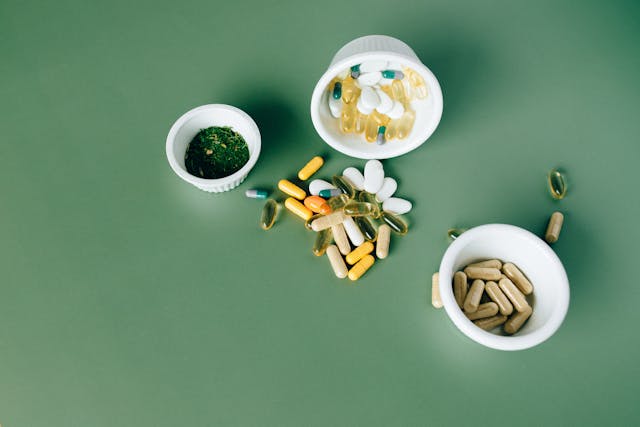Elderberry, derived from the Sambucus tree, has long been celebrated in traditional medicine for its potential health benefits. Known for its immune-boosting properties, elderberry is often used to combat colds, flu, and other ailments. But how effective is it? How much should you take, and who should avoid it? This article dives into these questions, offering a detailed look at elderberry’s uses, benefits, and side effects.
Does Elderberry Help with Cold and Flu?
Elderberry is frequently used as a natural remedy for colds and flu due to its antiviral and anti-inflammatory properties. Studies have shown that elderberry may reduce the duration and severity of these illnesses.
Scientific Evidence:
- A 2019 study published in Complementary Therapies in Medicine found that elderberry supplementation reduced the duration of cold symptoms by an average of two days compared to a placebo.
- Another study in 2004 revealed that elderberry extract reduced flu symptoms within 48 hours for participants compared to those taking a placebo.
Elderberry contains anthocyanins, powerful antioxidants that support the immune system by reducing inflammation and inhibiting the replication of viruses. This makes elderberry particularly effective during the early stages of colds and flu.
How Much Elderberry to Take for a Cold?
The dosage of elderberry depends on the form you’re using—syrup, capsules, gummies, or tea. Here are general guidelines:
- Elderberry Syrup: 1 tablespoon (15 ml) four times a day for adults; 1 teaspoon (5 ml) four times a day for children.
- Capsules or Tablets: Follow the manufacturer’s dosage instructions, typically 300-600 mg daily.
- Elderberry Tea: 1-2 cups daily during illness.
Always consult a healthcare provider before starting elderberry, especially for children or pregnant women.
What Is Elderberry Most Commonly Used For?
Elderberry has a range of uses, primarily in natural medicine:
- Immune Support: Preventing and treating colds and flu.
- Anti-Inflammatory Properties: Reducing inflammation linked to chronic diseases.
- Skin Health: Treating acne and promoting wound healing due to its antimicrobial properties.
- Digestive Health: Alleviating constipation and supporting gut health.
- Heart Health: Lowering cholesterol and improving circulation.
Who Should Not Take Elderberry?
While elderberry is generally safe for most people, certain groups should exercise caution or avoid it altogether:
- Pregnant or Breastfeeding Women: There is insufficient evidence to confirm elderberry’s safety during pregnancy and breastfeeding.
- People with Autoimmune Diseases: Elderberry can stimulate the immune system, potentially worsening conditions like lupus or rheumatoid arthritis.
- Those on Immunosuppressant Medications: Elderberry may interfere with drugs prescribed for organ transplants or autoimmune conditions.
- Children Under 5: Consult a pediatrician before giving elderberry to young children.
- Individuals Allergic to Elderberry or Similar Plants: Allergic reactions can occur in those sensitive to plants like honeysuckle.
Elderberry Benefits for Women
Elderberry offers specific benefits for women, particularly in supporting overall health and wellness:
- Menstrual Health: Its anti-inflammatory properties can help reduce cramps and bloating.
- Skin Health: Elderberry’s antioxidants combat oxidative stress, promoting youthful skin.
- Bone Health: Rich in minerals like potassium and calcium, elderberry supports bone density, essential for women prone to osteoporosis.
- Immune Boosting During Pregnancy: While not confirmed safe for use during pregnancy, elderberry’s immune-supporting properties may be beneficial under medical supervision.
Elderberry Dosage When Sick
When combating illness, elderberry’s antiviral properties are most effective if taken within the first 48 hours of symptom onset. Here’s a quick guide:
- Acute Dosage: Increase the frequency of elderberry intake, following the upper limit recommended by the product manufacturer.
- Maintenance Dosage: For ongoing immune support, take a lower daily dose as a preventive measure.
Elderberry Tea Side Effects
Elderberry tea is a popular way to enjoy its benefits, but it can have side effects if consumed in large quantities or improperly prepared. Raw elderberries contain cyanogenic glycosides, which can release cyanide.
Possible Side Effects of Elderberry Tea:
- Nausea
- Vomiting
- Diarrhea
- Stomach cramps
To avoid side effects, always use commercially prepared elderberry products or thoroughly cook elderberries before use.
Side Effects of Elderberry Supplements
Elderberry supplements are generally well-tolerated, but some individuals may experience:
- Digestive Issues: Mild stomach upset or diarrhea.
- Allergic Reactions: Swelling, itching, or difficulty breathing.
- Interference with Medications: Particularly immunosuppressants or diuretics.
If you experience any adverse effects, discontinue use and consult a healthcare provider.
FAQs About Elderberry
1. Is elderberry safe for children?
Elderberry can be safe for children over 5 years when used in appropriate doses. Always consult a pediatrician before use.
2. Can elderberry prevent colds and flu?
While elderberry can reduce the severity and duration of colds and flu, it is not a guaranteed preventive measure. Maintaining a healthy lifestyle is also essential.
3. How often can I take elderberry?
For prevention, elderberry can be taken daily in lower doses. During illness, it’s safe to take higher doses for short periods, as directed.
4. Are there any drug interactions with elderberry?
Yes, elderberry may interact with immunosuppressants, diuretics, and certain blood pressure medications. Consult your doctor if you’re on prescription drugs.
5. Can I take elderberry if I’m pregnant?
There’s limited evidence on elderberry’s safety during pregnancy. Consult your healthcare provider before use.
Conclusion
Elderberry is a powerful natural remedy with a wide range of potential benefits, from boosting immunity to supporting skin and heart health. However, like any supplement, it’s essential to use it responsibly, understanding its limitations and potential side effects. If you’re considering adding elderberry to your health regimen, consult a healthcare provider to ensure it’s right for you.


